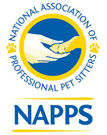Our Dogs and Chewing
Dogs don’t have opposable thumbs, so a lot of times when they interact with their environment, it is done through their mouths.
At Paws to Consider we take your dogs safety seriously, which is why being aware of our surroundings is always important during dog walks as many dogs try to snatch up anything they find (sticks and litter are always popular), sometimes with the intent of eating on the spot, other times as a tasty treat to chomp on at home. This is particularly true with puppies, puppy care always takes extra vigilance!
Chewing is normal for dogs, but it can certainly cause issues in the household, particularly if it occurs to your shoes, furniture or other household items!
Correcting your dogs chewing habit can often be simply solved by preventing unwanted chewing, while encouraging your dog to chew on dog toys. Always have safe dog toys/chews available to swap out if your dog starts chewing on something he/she shouldn’t. If chewing only occurs when you are out of the house and the dog is un-attended, try a crate or speak with a dog trainer/behaviorist, as this could be a sign of anxiety or boredom.
Chewing is often both a normal and healthy thing our dogs do (when it’s not destructive), but why do dogs chew?
- Release pent up energy, a daily dose of exercise is very important for most dogs, be sure to get in contact with your local dog walker if you feel that you cannot adequately exercise your pup!
- Stress, is a normal emotion dogs can feel, just like humans. Chewing can often be stress related
- Teething, is another reason for chewing, particularly in young dogs 3-6 months in age.
- Enjoyment, dogs often just enjoy chewing!
Be sure to keep in mind that what may seem like chewing or biting, is often actually classified as ‘mouthing,’ which is in essence the way a dog learns about an object, similar to how a human might use their hands for.
If you see your dog chewing something he/she shouldn’t be use this following guide:
1) Say ‘No” or ‘Eh’ in a low voice (similar to a mother dogs growl, which your dog should see as a sign of disapproval).
2) If your dog stops to look at you, praise them and give them a preferred chew toy.
3) Do not give your dog old shoes/socks/gloves, as this will train your dog to think chewing these items is ok
4) Always praise your dog if you see him/her chewing something good.
5) Make sure puppies always have chew toys available at all times, especially while teething.
6) Confine your dog to a crate or safe area when you are not home
7) Increase your dogs exercise or have Paws to Consider come walk your pup!
While we recognize that this is not necessarily a good behavior, it is still something that we must be aware of in order to correct and prevent in order to keep our dogs safe!
Do’s and Don’t:
- Do, provide your dog with lots of dog toys for chewing.
- Do, take preventative measures by supervising your dog and keeping items your dog shouldn’t chew out of reach!
- Do, stay calm if you catch your dog chewing something other than a suggested toy, and take corrective action as outlined in the previous posts
- Don’t, blame your dog for being a dog! As we learned in Pt 2 chewing can and is often natural in dogs, so always redirect your dogs energies to something he/she can chew!

Monday - Sunday 9:00AM - 9:00PM
Walking Hours 10:00AM - 4:00PM
We proudly serve the following areas: Jamaica Plain, Brookline, West Roxbury, Roxbury, Roslindale, Hyde Park, Allston, Mission Hill, Brighton, Dedham, Dorchester, Chestnut Hill, Mattapan, South Boston, Needham, Newton

We provide service to our clients 7 days a week and will be there when you can’t, to love your pet (almost) as much as you do! Paws to Consider is fully insured and bonded, and a proud member of the National Association of Professional Pet Sitters (NAPPS).

Recent Comments